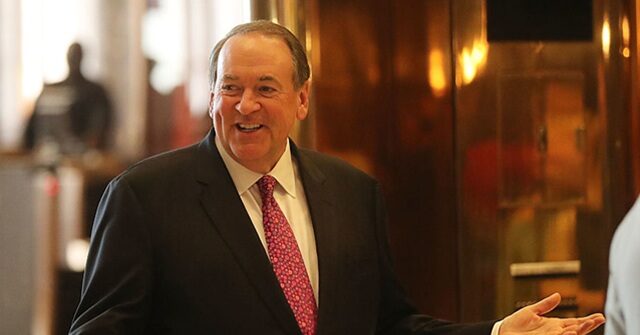On Wednesday’s episode of MSNBC’s “Andrea Mitchell Reports,” Andrea Mitchell addressed the implications of President-Elect Donald Trump’s choice for the U.S. Ambassador to Israel, Mike Huckabee. She highlighted Huckabee’s controversial stances on Israeli-Palestinian relations, signaling that his appointment could lead to significant shifts in U.S. foreign policy in the region. Huckabee is known for his strong Evangelical Christian beliefs, which he intertwines with his political views, potentially influencing his approach to complex issues such as the two-state solution and longstanding U.N. resolutions regarding Israel and Palestine.
During her discussion with Senator Chris Van Hollen (D-MD), Mitchell raised concerns about Huckabee’s remarks suggesting that Palestinians have no legitimate claim to the West Bank and his openness to the annexation of the territory. This proposal is particularly contentious as it challenges the framework established by previous agreements, such as the Camp David Accords, and undermines the two-state solution that has long been viewed as a viable path to peace. The senator’s perspective on Huckabee’s appointment is critical since he would play a role in the confirmation process, indicating that the political landscape surrounding such appointments is fraught with tension and differing viewpoints.
Huckabee’s views on Israel and Palestine are reflective not only of his personal beliefs but also of a broader Evangelical Christian perspective that often emphasizes unconditional support for Israel. This orientation towards Israel, informed by biblical narratives, has led to a political discourse that may disregard Palestinian rights and aspirations. Mitchell’s analysis underscores the potential consequences of Huckabee’s confirmation for U.S.-Israel relations and the fate of peace initiatives in the Middle East, which have historically required careful diplomacy and an understanding of both Israeli and Palestinian narratives.
The implications of Huckabee’s possible confirmation extend beyond U.S. domestic politics and into international relations as well. If Huckabee’s views were to guide U.S. policy, they could deepen hostilities in an already volatile region. The prospect of endorsing annexation and rejecting established frameworks could hinder efforts for reconciliation and jeopardize any progress towards a peaceful resolution. Furthermore, the U.N. resolutions he wishes to abrogate serve as a foundation for international law regarding Israel and Palestine, raising concerns about the accountability of U.S. foreign policy to global norms.
Mitchell’s discussion highlights the stark contrast between Huckabee’s approach and that of traditional U.S. diplomatic efforts that have typically advocated for negotiation and compromise. The endorsement of hardline stances, such as denying Palestinian land rights and promoting annexation, signals a potential pivot in American policy towards one that may be perceived as one-sided. This shift could galvanize both domestic and international opposition, as many stakeholders seek a more balanced approach that recognizes the rights and aspirations of both Israelis and Palestinians.
In conclusion, the appointment of Mike Huckabee as U.S. Ambassador to Israel raises profound questions about the future of American involvement in the Israeli-Palestinian conflict. As Andrea Mitchell emphasized during her broadcast, Huckabee’s beliefs, grounded in a particular interpretation of religious texts and political ideology, may influence U.S. foreign policy in ways that could disrupt longstanding agreements and hinder efforts toward peace. The complexities of this situation demand careful scrutiny from lawmakers, international stakeholders, and citizens alike, as the ramifications of such appointments could shape the geopolitical landscape for years to come.

